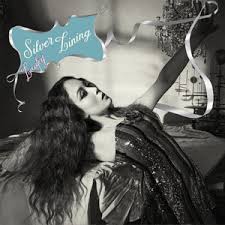Don’t Worry Darling Review

New Line Cinema, Vertigo Entertainment
Harry Styles and Florence Pugh have had less then savory reviews for their new movie, Don’t Worry Darling.
Potential triggers for this movie: self harm, suicide, racism, general violence.
The movie Don’t Worry Darling has unsavory reviews in the box office so far. A low 38 percent on Rotten Tomatoes, 6.3/10 on IMDB, and 48 percent on media critics. The Guardian has described it as “empty feminism” and prioritizing“style over substance.”
Based on the trailer and reviews for this movie, I didn’t have high hopes.
Don’t Worry Darling fits the cliche of an idyllic society that slowly falls apart with one person breaking the mold of the society. It separates men and women’s jobs, hobbies, and interests, so when there are scenes with the entire cast, it feels like two plotlines at once. It’s complicated to follow and unnecessarily complex with no satisfying conclusion.
The writers try to take a different approach by being “socially aware”. The movie is based on a 1950s society, where the men work on a top secret project and the women get to enjoy the money the husbands make. Attempting to make a comment on how women don’t need to rely on men, the movie instead comes off as sexist. They try to take on the topic of immersion in technology by having Alice be stuck in virtual reality (the world of Victory), but since the reveal is so sudden and confusing, it does not come across well.
From a writing standpoint, it was a terrible choice to have the only women of color as either crazy, a maid in the background, or the quiet obedient wife with little to no role.
Margret (Kiki Layne) is one of the women living in Alice’s (Florence Pugh) cul-de-sac who first introduced Alice to the possibility that something is wrong in Victory. When Margaret (the only Black lead character) brings her child into the desert and he dies, she is then labeled as a crazy lady in need of medical treatment. What should have been an influential character, Margaret had over half of her scenes cut. These scenes would have been crucial for the storyline, and most likely would have made the movie make more sense.
The only other Black character in this movie was in a glass box or a shopping box, but little to no explanation is given for what these boxes are, other than the implied idea that everything inside them is for sale. She is dressed as a maid vacuuming and presenting products to a group of white women. It leaves a bad taste in your mouth for all of the women cast in good light to be white.
The only Asian character in this movie was written as a quiet obedient wife who stands behind her husband. That is until, seemingly out of nowhere, she stabs her husband. It’s an awkward scene, and there is absolutely no follow up. What was meant to be feminism is flat out confusing. It’s implied that she’s running the Victory project after she kills him, but since there is no follow up it is not actually known how it ends.
The women that are cast in good light are put into the role of the housewife who likes to go shopping. Not a single woman goes to work or does anything other than cook for her husband, shop, or clean.
Not until close to the end of the movie do you see that in real life (outside of the VR of Victory), Alice was actually a surgeon who works long hours to sustain her and her boyfriend, Jack (Harry Styles). Once she remembers, Jack asks her what she really wants their life to look like, heavily implying that she would rather be dependent on him as the breadwinner, and her the housewife.
The men throughout the story attempt to gaslight Alice — except for one, Frank (Chris Pine). He encourages her to break societal norms. Had it not been for him, Alice would have been brainwashed into the world her boyfriend put her into.
Alice is breaking down on the night Jack gets his promotion, and is told “pull yourself together before you ruin this for him.” Meanwhile, Jack is asked, “Are you the man you say you are?” right before Frank, the founder of Victory, offers him the promotion. Jack is pushed into the strong man role, and Alice is once again forced to subdue her emotions. Any emotion from Alice is met with intolerance. At this time, it is unclear what getting a promotion actually means, until the end when it is revealed he leaves virtual reality to make enough money to keep Alice in Victory indefinitely.
Despite the storyline and casting, the movie is aesthetically beautiful, with detail oriented sets, impeccable costuming and a great hair and makeup department. The way that the set is arranged immerses the viewer in the 1950s. While the hair and makeup reflects the 50s, it still holds a slightly modern twist.
Unfortunately, this movie deserves the ratings it has accumulated. The writing is confusing, and inconsistent in storytelling.The beginning of the movie is abrupt, and no introductions are made for characters. The filming is choppy, and their attempt to make things unsettling falls flat.
So many of the scenes feel forced. For example, when Jack Chambers begins to tap dance after he gets his promotion, the scene is awkwardly cut with Alice Chambers crying in the bathroom. Generally speaking, most scene changes feel abrupt.
The wives all go to classes together where they learn remedial ballet, where the ideals of control and symmetry are introduced. It is unclear if they are meant to correlate, there are random cut scenes of unidentified ballet dances in black and white, which are a stark contrast to the rest of the movie in its bright colors. The scenes are simply the same sequence time and time again. It’s revealed at the end that it’s supposed to be the hypnosis vision keeping Alice in the virtual reality, but throughout the movie this concept feels forced and only makes the storyline more confusing.
At the end of the movie, it feels like everything is being thrown at you at the same time. Plot holes are abundant, leaving the viewer with the general feeling of “What just happened here?”
The acting is very well done for what they were given. Never was the acting what made a scene uncomfortable or not make sense, instead it was the cinematography. With a well known cast, this movie was a let down.
Don’t Worry Darling had great potential, which is what makes it upsetting to walk out of. The filming and writing of this movie is subpar, to the point where good acting and perfect set design, costuming and makeup can’t save it.
Your donation will support the student journalists of State College Area High School. Your contribution will allow us to purchase equipment and cover our annual website hosting costs.






